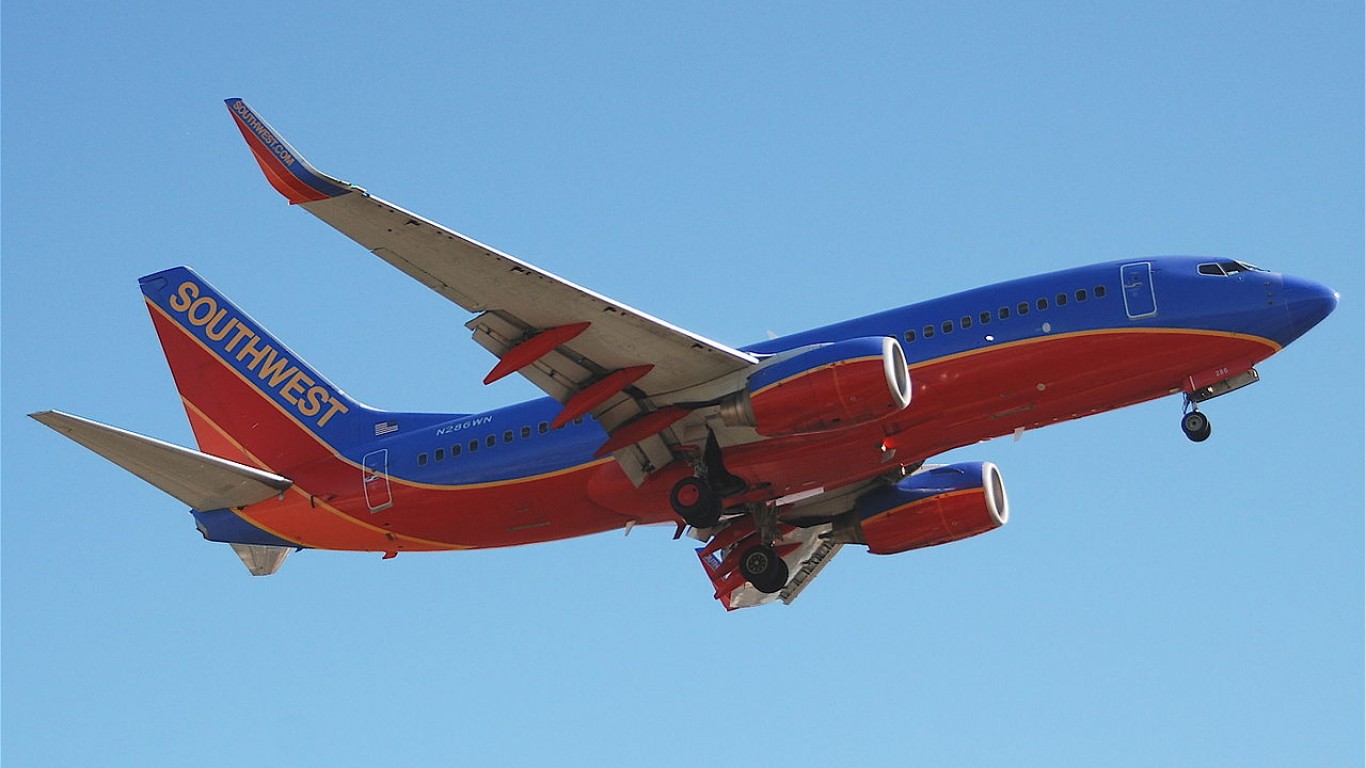Transportation
Southwest Airlines vs Mechanics: How Much Is It Costing Investors?

Published:
Last Updated:

Early Wednesday morning, Southwest Airlines Co. (NYSE: LUV) filed a statement with the U.S. Securities and Exchange Commission (SEC) raising its estimated year-over-year revenue decline in the first quarter of 2019 from a previous estimate of $10 million to a new total of $60 million. The initial reduction was blamed on the government shutdown. The larger reduction is the result of continued “softness in passenger demand and bookings as a result of the government shutdown.”
The airline also reduced its estimate of revenue per available seat mile (RASM) from a prior gain of 4% to 5% to a new range of $3% to 4%.
News from the company gets at least more complicated and likely worse due to a war of words (so far) between Southwest and its mechanics’ union. The two have been negotiating a new contract for more than six years with no end in sight. On Tuesday, the airline released a statement suggesting that the union is the force behind a recent increase in the number of Southwest planes being held out of service due to maintenance issues:
On Feb. 12, just days after our last negotiations session with [Aircraft Mechanics Fraternal Association (AMFA)], we experienced an unprecedented number of out-of-service aircraft in four specific maintenance locations despite no change in our maintenance programs, no changes in leadership, and no changes in our policies and procedures.
The airline continued:
AMFA has a history of work disruptions, and Southwest has two pending lawsuits against the union. We will be investigating this current disruption and exploring all possible remedies.
More than 40 of Southwest’s 750 or so aircraft have recently been taken out of service for maintenance. According to the airline, that’s about double the number of planes usually out of service at any one time. The lower number of available aircraft has caused Southwest to cancel or delay flights and led to a company-declared “operational emergency” last Friday, which gives Southwest the right to demand employees work overtime or face termination.
The union disputes Southwest’s charges:
For Southwest’s leadership to connect the airline’s self-declared “operational emergency” to collective bargaining negotiations is simply an attempt to divert attention away from the airline’s safety issues. The [U.S. Federal Aviation Administration (FAA)] has condemned the carrier’s “capitulation of airworthiness” and Southwest has confessed that it has flown passengers in unairworthy aircraft.
The FAA has investigated whistleblower complaints at two Southwest maintenance centers, one in Los Angeles and the other in Dallas-Fort Worth. According to a report at NBCDFW.com last May, the FAA commented on the hostility between the airline and the AMFA:
There seems to be a lack of an environment of trust, effective communication and the willingness for employees to share mistakes, concerns or failures without the fear of threats or reprisals. … This ultimately leads to a degraded level of safety.
It appears that it also leads to a hit to Southwest’s stock price. Shares traded down about 5.8% at $54.28 Wednesday morning, in a 52-week range of $44.28 to $64.02. The 12-month consensus price target on the stock is $64.16.
The average American spends $17,274 on debit cards a year, and it’s a HUGE mistake. First, debit cards don’t have the same fraud protections as credit cards. Once your money is gone, it’s gone. But more importantly you can actually get something back from this spending every time you swipe.
Issuers are handing out wild bonuses right now. With some you can earn up to 5% back on every purchase. That’s like getting a 5% discount on everything you buy!
Our top pick is kind of hard to imagine. Not only does it pay up to 5% back, it also includes a $200 cash back reward in the first six months, a 0% intro APR, and…. $0 annual fee. It’s quite literally free money for any one that uses a card regularly. Click here to learn more!
Flywheel Publishing has partnered with CardRatings to provide coverage of credit card products. Flywheel Publishing and CardRatings may receive a commission from card issuers.
Thank you for reading! Have some feedback for us?
Contact the 24/7 Wall St. editorial team.